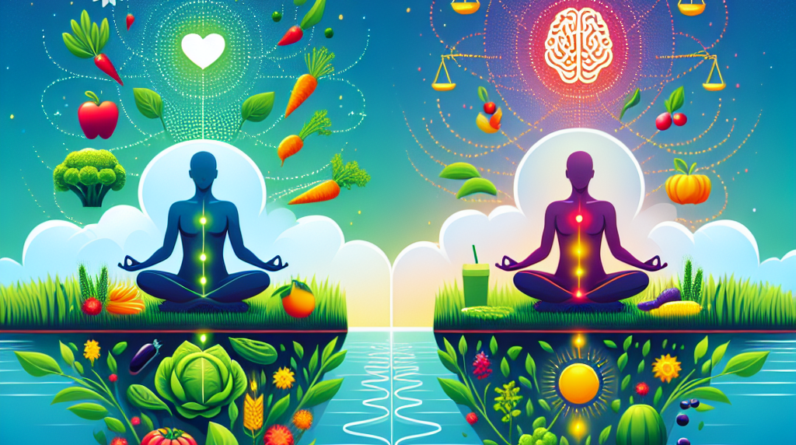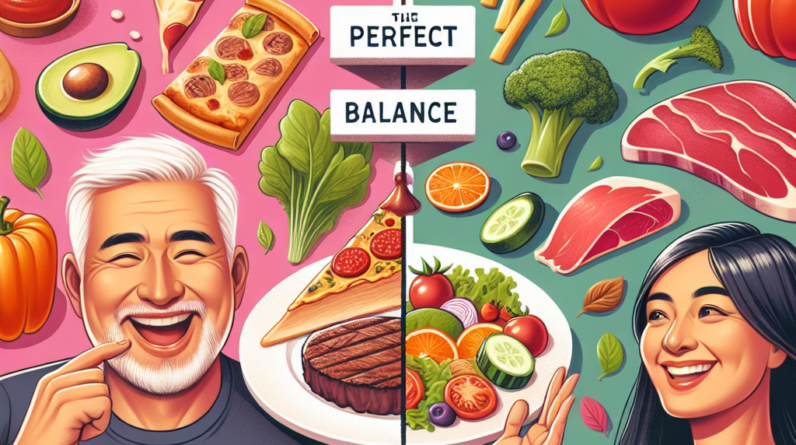
The Misconception of Organic = Pesticide-Free
Understanding Organic Pesticides
One of the biggest myths is that organic products are completely pesticide-free. In my own journey, I was surprised to learn that organic farming does use pesticides, but they are derived from natural sources. For example, substances like neem oil and insecticidal soap are common. It’s crucial for us to understand that organic doesn’t mean absent of chemicals; it means the chemicals used are generally considered safer.
Get a Huge Discount and Bonus! Try for 90 Days Risk Free
It’s also important to realize that ‘natural’ pesticides can still be harmful or cause allergic reactions in some people. So while organic farming employs methods that are less reliant on synthetic options, it doesn’t mean you’re completely in the clear. It’s all about understanding what these pesticides are and how they can affect our health.
As consumers, we should scrutinize labels and learn what’s inside the products we purchase. Educating ourselves gives us the power to make informed decisions, rather than relying solely on the term ‘organic’ as a stamp of superiority.
The Role of Organic Foods in Health
Another area that often trips folks up is the health benefits of organic foods. Many people believe that eating organic alone will make them healthy. However, when I switched to organic products, I was still eating junk food that was labeled organic. The truth is, a salad made with organic dressing isn’t any healthier than a regular salad if it’s still packed with sugars and preservatives.
Real health comes from a balanced diet full of whole foods—fruits, veggies, lean proteins, and healthy fats. Just because something is organic doesn’t automatically make it healthful. It’s essential to maintain a balanced perspective on our diets; organic items can be part of a healthy regime, but they are not the magic bullet.
Therefore, the narrative that organic food guarantees health benefits needs to change. A holistic approach to eating is what matters most, and it’s wise to be critical about what we eat rather than simply following the organic trend.
Cost vs. Quality: Is Organic Worth It?
Let’s talk about the elephant in the room: the price difference between organic and conventional food. Initially, I hesitated to buy organic because my budget was tight. Friends would tell me how it’s worth the investment, but I wasn’t fully sold. However, when I began to educate myself, I realized there were a few key factors at play.
Organic farming often involves more labor and care, resulting in higher costs which are passed on to the consumer. That said, investing in organic means supporting sustainable practices, which are increasingly important for our environment and future generations. For me, every organic buy became a small vote for a better system.
While the prices can be steep, I learned to prioritize where I spend. Shopping in local farmers’ markets or choosing organic options for certain produce can turn out more affordable than anticipated. It’s all about balance, folks—get the most bang for your buck while supporting practices that resonate with your values.
Get a Huge Discount and Bonus! Try for 90 Days Risk Free
The Myth of All Natural = Organic
The Misleading “Natural” Label
People often confuse the labels ‘natural’ and ‘organic.’ I remember a time when I thought they were synonymous, but that couldn’t be further from the truth. The term ‘natural’ isn’t regulated by the government and can be used with little accountability. It can lead you to think that the product is better for you when it might not be.
For instance, products labeled “natural” can still contain synthetic ingredients. It was a rude awakening when I realized I had been misled. Brands use this term to attract consumers who are health-conscious, but it doesn’t guarantee the same standards as organic products. Digging deeper into ingredient lists became my go-to practice.
Being informed is your best weapon! Understanding the difference allows us to be more discerning shoppers. Instead of just focusing on labels, let’s prioritize transparency and ingredient quality in our purchases.
Need a Serious Energy BOOST? Huge Discount Try for 90 Days Risk Free
Good Health Solution is Easier Than Most People Think!
Take a Look for Yourself!
Fake News About Organic Animal Products
Organic doesn’t just apply to crops; animal products are often labeled as organic too. There seems to be a myth floating around that all animal products labeled organic are raised in the best conditions. Well, I wish that were completely true. While organic standards do require certain welfare measures, they can still be quite misleading.
For instance, organic animals are often raised without antibiotics and given organic feed, but that doesn’t mean they roam freely or have a happy life. Many ranchers and farms still adhere to practices that can be far from idyllic. It’s essential to seek out animal products from farms that prioritize ethical practices, just because something is organic doesn’t mean it’s the best choice for ethical consumption.
Taking the time to research the sources of your food—especially animal products—can yield surprising findings about your choices. Combine that info with organic certification to make informed decisions that align with your values.
The Role of Certification in Quality
Finally, let’s chat about certification. Folks might think that just being labeled as organic means a product is high-quality. I had my moments of confusion here, too! Organic certification is indeed a good sign, but it’s important to look beyond the label. Sometimes, smaller farms that don’t have specific organic certifications can be doing just as good, if not better, work.
It’s vital to understand the difference between certified organic and simply using the term ‘organic.’ A hefty certification process can also mean a higher price tag, which doesn’t always guarantee superior quality. The solutions often lie in knowing your farmers or understanding their practices.
Join me in pushing for a food system where transparency shines. It’s about knowing the story behind what’s on your plate and discerning what matters most to you—be it organic certification, local sourcing, or ethical practices. Ultimately, knowledge is our best tool!
FAQs
1. What is the biggest misconception about organic food?
The biggest misconception is that organic equals pesticide-free. Organic farms still use pesticides, but they are typically natural rather than synthetic.
2. Are organic foods necessarily healthier?
No, organic doesn’t automatically mean healthier. A balanced diet filled with whole foods is key, regardless of whether they are organic or not.
3. Why are organic products more expensive?
Organic farming often involves more manual labor, higher production costs, and strict regulations which lead to the higher prices.
4. Is the ‘natural’ label trustworthy?
No, the ‘natural’ label isn’t regulated, which means products labeled as such can still contain synthetic ingredients.
5. How can I find quality organic products?
Look beyond labels. Research local farms, read ingredient lists carefully, and consider the overall farming practices behind your food.








